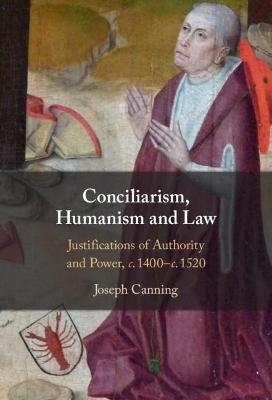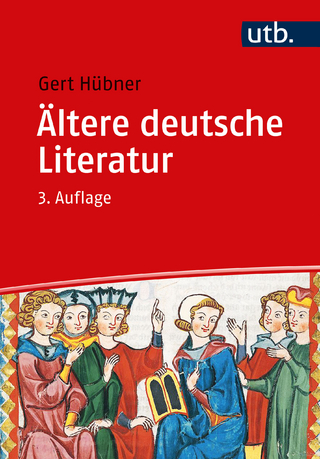
Conciliarism, Humanism and Law
Justifications of Authority and Power, c. 1400–c. 1520
Seiten
2021
Cambridge University Press (Verlag)
978-1-108-83179-6 (ISBN)
Cambridge University Press (Verlag)
978-1-108-83179-6 (ISBN)
Set against the background of juristic thought and addressing the arguments that people at the time found convincing, this study explores how power and authority were justified in late medieval Europe, through the two key intellectual movements of the fifteenth century: conciliarism in the church, and humanism.
How was power justified in late medieval Europe? What justifications did people find convincing, and why? Based around the two key intellectual movements of the fifteenth century, conciliarism in the church and humanism, this study explores the justifications for the distribution of power and authority in fifteenth- and early sixteenth-century Europe. By examining the arguments that convinced people in this period, Joseph Canning demonstrates that it was almost universally assumed that power had to be justified but that there were fundamentally different kinds of justification employed. Against the background of juristic thought, Canning presents a new interpretative approach to the justifications of power through the lenses of conciliarism, humanism and law, throwing fresh light on our understanding of both conciliarists' ideas and the contribution of Italian Renaissance humanists.
How was power justified in late medieval Europe? What justifications did people find convincing, and why? Based around the two key intellectual movements of the fifteenth century, conciliarism in the church and humanism, this study explores the justifications for the distribution of power and authority in fifteenth- and early sixteenth-century Europe. By examining the arguments that convinced people in this period, Joseph Canning demonstrates that it was almost universally assumed that power had to be justified but that there were fundamentally different kinds of justification employed. Against the background of juristic thought, Canning presents a new interpretative approach to the justifications of power through the lenses of conciliarism, humanism and law, throwing fresh light on our understanding of both conciliarists' ideas and the contribution of Italian Renaissance humanists.
Joseph Canning is Affiliated Lecturer in the Faculty of History at the University of Cambridge. A Fellow of the Royal Historical Society, he is the author of The Political Thought of Baldus de Ubaldis (1987), A History of Medieval Political Thought, c.300-c.1450 (1996) and Ideas of Power in the Late Middle Ages, 1296-1417 (2011).
Introduction; 1. Conciliarism and Changes of Mind; 2. Conciliarism and Papalism; 3. Italian Humanism; 4. The Law; Conclusion.
| Erscheinungsdatum | 21.06.2021 |
|---|---|
| Zusatzinfo | Worked examples or Exercises |
| Verlagsort | Cambridge |
| Sprache | englisch |
| Maße | 158 x 235 mm |
| Gewicht | 460 g |
| Themenwelt | Geschichte ► Allgemeine Geschichte ► Mittelalter |
| Geschichte ► Allgemeine Geschichte ► Neuzeit (bis 1918) | |
| Geisteswissenschaften ► Geschichte ► Regional- / Ländergeschichte | |
| Sozialwissenschaften | |
| ISBN-10 | 1-108-83179-6 / 1108831796 |
| ISBN-13 | 978-1-108-83179-6 / 9781108831796 |
| Zustand | Neuware |
| Haben Sie eine Frage zum Produkt? |
Mehr entdecken
aus dem Bereich
aus dem Bereich
eine neue Geschichte des Mittelalters
Buch | Hardcover (2023)
C.H.Beck (Verlag)
38,00 €


